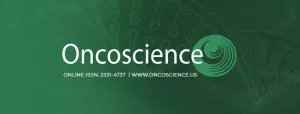(Press-News.org) Amsterdam, Netherlands – 25 Aug 2023: The European Society of Cardiology (ESC) Guidelines on cardiomyopathies are published online today in European Heart Journal.1 This is the first international guideline document to include all cardiomyopathy subtypes, and the first time that specific recommendations are made for cardiomyopathies other than hypertrophic cardiomyopathy.
“This pioneering document reflects the advances in genetics and cardiac imaging and the advent of new treatments that target specific causes of disease,” said Guidelines task force chairperson Dr. Elena Arbelo of the Hospital Clinic, University of Barcelona, Spain.
“At the core of this new Guideline are patients and their families, starting from the point at which an individual presents with symptoms, or as an incidental finding or because of a family history, and working through the pathway towards making a diagnosis and starting treatment,” said Guidelines task force chairperson Dr. Juan Pablo Kaski of University College London, UK.
Cardiomyopathies are conditions that affect the muscle of the heart. They are a group of conditions that can affect the heart’s structure, reduce its ability to pump blood around the body and cause abnormal heart rhythms. Cardiomyopathies can present at any age and affect patients and families across the life course. They are often caused by changes in the genes responsible for how the heart muscle cells function, meaning that they can run in families.
Overall, cardiomyopathies are relatively common, affecting around 1 in every 250 people. Some cardiomyopathies are more common than others, however, and the risks and complications are also variable. Many people have very few, if any, symptoms, but others experience fatigue, shortness of breath, chest pain, palpitations and fainting, and have complications such as stroke or sudden death.
The Guidelines highlight the many areas of diagnosis and management that are shared across cardiomyopathy subtypes and gives specific recommendations for each. Diagnosis starts with a description of how the heart looks and behaves – is it thickened, dilated or scarred, and is the pumping function abnormal? – and then incorporates information on heart rhythm abnormalities, family history and genetic testing to arrive at a more precise diagnosis. Cardiomyopathy should be considered as the potential cause of other conditions such as heart failure. “Imaging techniques including echocardiography and cardiac magnetic resonance imaging are essential for the diagnosis of certain subtypes and can help identify patients at risk of sudden death,” said Dr. Arbelo.
The diagnosis of an inherited cardiomyopathy may lead to exclusion from competitive sports and affect decisions about having children. Some patients must live with a small risk of sudden death or the possibility of a future heart transplantation. An implantable cardioverter defibrillator (ICD) may be advised to prevent sudden death. The Guidelines recommend genetic counselling to support patients and their relatives understand and adapt to the diagnosis of a genetic disease. It should be offered before a decision to test is made and when the results are returned to the patient and their family. In addition, clinical psychological support should be offered to all patients who have undergone ICD implantation or who have a family history of sudden cardiac death.
For all cardiomyopathies, management aims to identify and treat symptoms, prevent complications and screen at-risk relatives. Identifying those at increased risk of sudden death is a major focus of these Guidelines. Shared decision-making is advised when selecting certain treatments such as ICDs. Other treatments include drugs to address symptoms and heart transplantation. Many subtypes are inherited in an autosomal dominant way, meaning that offspring have a 50% chance of inheriting the mutation. When such a mutation is found, testing of relatives can be considered. Dr. Kaski said: “Early diagnosis and treatment of family members can prevent disease progression in some cardiomyopathies and avoid complications.”
A dedicated section of the Guidelines provides advice for patients on living with a cardiomyopathy. This includes exercise, diet, alcohol, weight, reproductive issues, sexual activity, medication, vaccination, driving, employment, holidays and travel insurance, and life insurance.
Cardiomyopathies are the leading cause of exercise-related sudden cardiac death in young people in the Western world. In some cardiomyopathies, exercise accelerates progression of the disease, and this has historically resulted in recommendations for all patients to limit activity. Many patients have confined themselves to a relatively sedentary lifestyle through fear of sudden cardiac death and have missed out on the benefits of exercise in preventing coronary artery disease. These Guidelines recommend regular low to moderate intensity exercise for all patients with cardiomyopathy who are able to do so. An individualised risk assessment should be performed so that an exercise prescription can be provided taking into account the prevention of life-threatening arrhythmias during exercise, symptom management to allow sports and preventing sports-induced progression of the disease. Patients with certain cardiomyopathies should avoid very high intensity or competitive sports.
The Guidelines recommend a multidisciplinary approach to patient care, and timely and adequate preparation for transition of care from paediatric to adult cardiomyopathy services. They emphasise the need for integrated care between specialist cardiomyopathy teams and other professionals, including cardiologists, geneticists, genetic counsellors, pathologists and other specialties, as well as close interactions between primary, secondary and tertiary care.
ENDS
Notes to editors
Authors: ESC Press Office
Tel: +33 (0)661401884
Email: press@escardio.org
The hashtag for ESC Congress 2023 is #ESCCongress.
Follow us on Twitter @ESCardioNews
Funding: None.
Disclosures: The disclosure forms of all experts involved in the development of these guidelines are available on the ESC website www.escardio.org/guidelines.
References and notes
12023 ESC Guidelines for the management of cardiomyopathies. European Heart Journal. 2023. https://doi.org/10.1093/eurheartj/ehad194
About ESC Congress 2023
It is the world’s largest gathering of cardiovascular professionals, disseminating ground-breaking science both onsite in Amsterdam and online – from 25 to 28 August. Explore the scientific programme. More information is available from the ESC Press Office at press@escardio.org.
About the European Society of Cardiology
The European Society of Cardiology brings together health care professionals from more than 150 countries, working to advance cardiovascular medicine and help people lead longer, healthier lives.
END
First international guidelines on heart muscle diseases published today
2023-08-25
ELSE PRESS RELEASES FROM THIS DATE:
Recommendations to reduce cardiovascular risk in patients with diabetes published today
2023-08-25
Amsterdam, Netherlands – 25 Aug 2023: Patients with type 2 diabetes are more than twice as likely to develop cardiovascular disease (CVD) than their healthy peers. Advice to lower that risk is launched today in the 2023 European Society of Cardiology (ESC) Guidelines for the management of cardiovascular disease in patients with diabetes, published in European Heart Journal.1
“Patients with type 2 diabetes have a two- to four-fold higher risk of coronary artery disease, stroke, heart failure, atrial fibrillation and peripheral artery disease compared to those without type 2 diabetes and when CVD occurs, the prognosis ...
Patients urged to be vigilant about cardiac infections
2023-08-25
Amsterdam, Netherlands – 25 Aug 2023: Patients with specific cardiac conditions such as valvular heart disease and congenital abnormalities, or those requiring a pacemaker, should practice good dental and skin hygiene to help prevent rare but potentially deadly infections of the heart’s inner lining and valves, according to European Society of Cardiology (ESC) Guidelines on infective endocarditis, published online today in European Heart Journal.1
“Infective endocarditis is an uncommon but very serious disease that can present with ...
Focused update of ESC Heart Failure Guidelines published today
2023-08-25
Amsterdam, Netherlands – 25 Aug 2023: A focused update of the European Society of Cardiology (ESC) Heart Failure Guidelines is published online today in European Heart Journal following the results of major new trials that should change the management of patients with heart failure.1
“Heart failure is a fast-moving area of research and exciting new trials are expanding the treatment options for patients,” said Guidelines task force chairperson Professor Theresa McDonagh of King’s College Hospital, London, UK. “This focused update incorporates the latest evidence-based treatments ...
Cancer drug development yesterday, today and tomorrow
2023-08-25
“One can expect that artificial intelligence (AI) will play some role in the future drug development.”
BUFFALO, NY- August 25, 2023 – A new editorial paper was published in Oncoscience (Volume 10) on August 17, 2023, entitled, “Cancer drug development yesterday, today and tomorrow.” In this new editorial, researchers Elzbieta Izbicka and Robert T. Streeper from New Frontier Labs discuss the history of cancer drug development and how it has evolved over time. The editorial also highlights the current state of cancer drug development and ...
How fast does the charge migrate in molecules?
2023-08-25
To discover how light interacts with molecules, the first step is to follow electron dynamics, which evolve at the attosecond timescale. The dynamics of this first step have been called charge migration (CM). CM plays a fundamental role in chemical reactions and biological functions associated with light–matter interaction. For years, visualizing CM at the natural timescale of electrons has been a formidable challenge in ultrafast science due to the ultrafine spatial (angstrom) and ultrafast temporal ...
AI analysis finds younger AFib patients benefit from MRI-guided ablation treatments
2023-08-25
Younger atrial fibrillation (AFib) patients are most likely to benefit from more personalized, MRI-guided ablation treatments to correct irregular heart rhythms, according to a new artificial intelligence-guided analysis of results from the DECAAF II trial, one of the largest global studies of treatments for heart arrhythmias.
Tulane University researchers presented the findings at the European Society of Cardiology (ESC) Congress 2023 in Amsterdam this week.
There’s been debate among physicians on whether going beyond traditional ablation treatments provides a benefit to patients. In 2021, the ...
European Society of Cardiology calls for competency-based cardiac imaging
2023-08-25
Sophia Antipolis, 25 August 2023: Competency-based cardiac imaging delivery is needed for effective and efficient patient care, according to a European Society of Cardiology (ESC) statement published today in European Heart Journal, a journal of the ESC.1
All seven ESC subspeciality associations have endorsed the document, namely the European Association of Cardiovascular Imaging (EACVI), Association of Cardiovascular Nursing & Allied Professions (ACNAP), Association for Acute CardioVascular Care (ACVC), European Association of Preventive Cardiology (EAPC), European Association ...
Understanding the surge in cannabis use among pregnant and postpartum women in the US
2023-08-25
Pregnant and recently postpartum women who suffer with mental health disorders may be vulnerable to using cannabis to self-medicate, according to a Rutgers-led study.
In a nationally representative survey, Qiana L. Brown, an assistant professor at the Rutgers School of Social Work, examined the relationship between mental health disorders, cannabis use and cannabis use disorder (CUD) among pregnant and postpartum women in the US. The findings were published online in advance of print in the July 2023 issue of the journal Drug and Alcohol Dependence.
“Before this study, we ...
A study to keep downtown Arlington vibrant
2023-08-25
A study led by two University of Texas at Arlington public affairs professors, in partnership with city leaders, suggests downtown Arlington events would enjoy increased attendance if there were more parking, shaded areas and Instagram-ready photo opportunities.
Respondents to the survey consider downtown Arlington one of the top-three destinations in the city for entertainment.
“Downtown is competing with Texas Live! and The Highlands,” said Emily Nwakpuda, assistant professor in UTA’s College of Architecture, ...
The recovery of European freshwater biodiversity stops, urgent action needed
2023-08-25
Freshwater ecosystems hold significant significance in the context of global biodiversity. These water bodies provide habitat for numerous plant and animal species, and they play a crucial role in maintaining food chains and preserving ecological balance. Mitigation measures including wastewater treatment and hydromorphological restoration have historically shown promise in improving environmental quality and supporting the recovery of freshwater biodiversity.
Together with a large international team the study’s first author, Prof. Dr. Peter Haase of the Senckenberg ...



